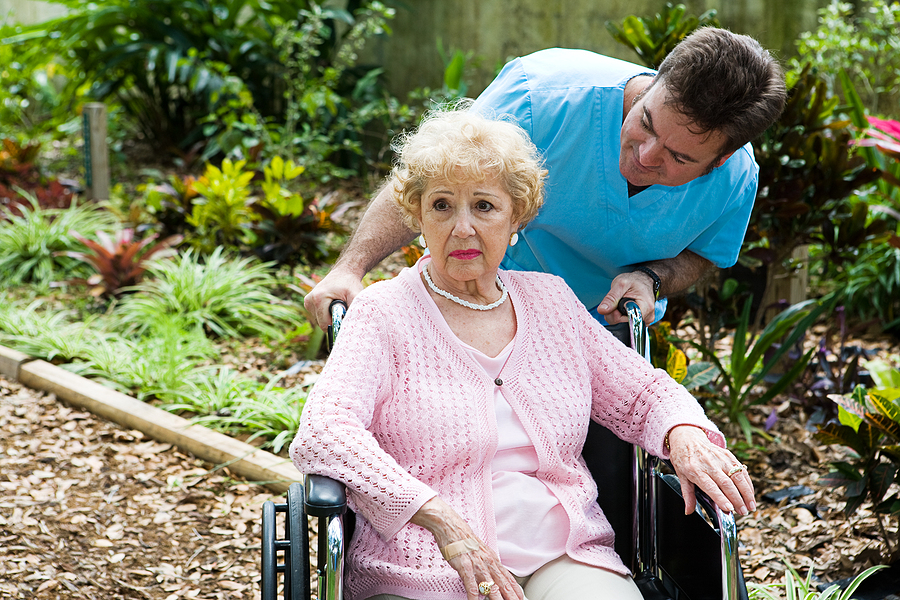
When you trust the care of an elderly loved one to a nursing home, the last thing you might expect is that person to suffer harm due to nursing home negligence. A well-run facility can bring a sense of comfort to residents and family members alike. However, when it’s not, it can be a nightmare.
There are lots of signs that your loved one is being neglected, or flat-out abused, in a nursing facility. This article will highlight six of the more common signs. If any of these apply to your family member, or you have any reason whatsoever to believe they’re being mistreated, please get in touch with Sand Law LLC as soon as you can.
Our team of attorneys will thoroughly investigate to see if abuse or neglect – or both – is taking place. If it is, we will fight hard to make sure your family obtains the compensation that you have coming. If you would like to learn more about how we might be able to help, please contact us online or give us a call at 651-291-7263 to schedule a free consultation.
1. Malnutrition
Does it seem that your mother, your father, or some other member of your family in a nursing home has lost a great deal of weight? This could be due to a change in their medication, or the fact that they simply don’t want to eat. This can happen in the elderly.
However, if a staff member can’t explain why this weight loss is taking place, that could be an indication your loved one is being neglected. The nursing home might not be properly monitoring the resident, documenting what type of diet they’re supposed to be following. Get in touch with a nursing home attorney with Sand Law LLC and we can get to the bottom of what is going on.
2. Won’t Meet in Private
Another red flag indicating something is wrong will be if staff members don’t let you visit with your loved one in a private setting. They may be worried the resident will say something about being abused physically or emotionally. If your loved one insists on speaking somewhere private, you need to insist that happen as well. It could simply be going to a secluded spot outside the facility, or even in your car if necessary. If you get any sort of resistance, contact an attorney.
3. Unsanitary Conditions
There’s simply no excuse for a nursing home to ever be unsanitary. If the first thing you notice when going inside is a foul odor, don’t be afraid to ask why that’s the case. Do you find yourself cleaning your loved one’s room? Find out why. If you’re not satisfied with the answers you receive – or worse yet, no one gives you any answers whatsoever – get legal help.
4. Agitation During Visits
Does your loved one seem to be on edge, especially when certain staff members come into the room or walk by? It could be due to the fact that your loved one is suffering some sort of abuse. While there’s a possibility the resident is simply angry because they hate being in a nursing home, if they tend to tense up in the presence of a particular nurse or someone else, that could mean something illegal is happening.
There’s also a chance the resident might suddenly be withdrawn, seeming to be depressed. They might not want to talk, when in the past they loved conversing with you. Talk to staff members to see if they have any explanation for the change in mood. If they can’t give you answers, an attorney might be able to get them for you.
5. Unexplained Injuries
Elderly people are more prone to injuries due to falling, simply because their legs aren’t as strong as they used to be. Bruising is also common.
But if your loved one has been injured and no one can explain why, that’s an urgent indication that neglect or mistreatment is occurring. Take detailed notes about the injury, including the date you noticed it and the response of the nursing home when you asked what happened. Take pictures or videos as well.
If your loved one is able or willing to talk, ask them to tell you why they were hurt. They may not want to tell you out of a fear of retribution. Call 911 or take them to the hospital if you have any reason to feel their life could be in immediate danger.
Share your observations with nursing home staff, or the facility director. Give them a chance to explain. If they refuse to do so, or you’re not satisfied with what they say, talk to a personal injury attorney to determine the next steps you should take.
6. Changes in Behavior
If your loved one is suddenly acting differently, it could be due to a medical condition, such as dementia or a recent stroke. But nursing home abuse can also trigger personality changes, leading to depression or withdrawal.
Does the resident seem afraid of loud noises or sudden movements? That might mean they’re being abused. Ask them if they’re comfortable in the nursing home, or find out if there’s anything they need to tell you. If there are others around, take your loved one to a secluded spot where no one else can hear your conversation.
Mental abuse is just as debilitating as physical abuse. Talk to an attorney if you believe this is taking place.
Contact a Nursing Home Abuse Attorney
Nursing homes have a duty to properly care for their residents, and to make their facilities as safe as possible. When they fail to meet that duty, they can be targeted for a lawsuit. If you see signs of trouble, or you have reason to believe that staff members are trying to cover up negligence or abuse, take action immediately.
Get in touch with Sand Law LLC so we can uncover the facts of what’s really happening. Schedule a free case review by calling 651-291-7263 or contacting us online.

